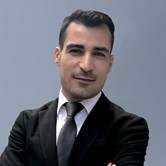Syria


A US soldier walks near a Bradley Fighting Vehicle (BFV) during a patrol in the countryside near al-Malikiyah (Derik) in Syria's northeastern Hasakah province on February 2, 2021. Photo: Delil Souleiman / AFP
prev
next
WASHINGTON DC, United States — US forces in northeast Syria are still protecting oil facilities, continuing the order by former-president Donald Trump to protect the “critical” infrastructure from the Islamic State (ISIS), a Pentagon spokesperson told Rudaw on Monday.
“As part of the Defeat-ISIS effort, the Syrian Democratic Forces [SDF], with the support of US forces, secures critical petroleum infrastructure in northeast Syria to deny ISIS access to critical resources and revenue,” Jessica McNulty, a spokesperson for the Pentagon, told Rudaw on Monday.
John Kirby, the Pentagon’s Press Secretary, also spoke of the US force presence in northeast Syria at a press conference on Monday, noting that while the US Department of Defense is not “authorized” to assist any private company, they are continuing their fight against the extremist group in partnership with the Kurdish-led Syrian Democratic Forces (SDF).
“DOD [Department of Defense] personnel or contractors are not authorized to provide assistance to any other private company, including its employees or agents seeking to develop oil resources in northeast Syria,” said Kirby.
“US forces remain in northeast Syria, where they work by, with, and through the Syrian Democratic Forces in the fight against ISIS,” added the press secretary, who noted that 900 Americans are stationed in Syria, but the numbers “fluctuate daily due to operational requirements.”
US Central Command (CENTCOM) commander General Kenneth McKenzie in a virtual conference told the Middle East Institute, said the International Coalition “retains a presence at Al-Tanf Garrison in southwest Syria and also in north-east Syria.”
Trump withdrew troops from Syria in October 2019, leaving only a small number of US troops to protect the oil fields in northeast Syria.
The UK-based monitor Syrian Observatory for Human Rights (SOHR) on December 30 reported the largest ISIS inflicted death toll on Syrian government troops and militia, with 37 soldiers and members of Liwaa Al-Quds, a pro-government militia, killed by the group.
“As part of the Defeat-ISIS effort, the Syrian Democratic Forces [SDF], with the support of US forces, secures critical petroleum infrastructure in northeast Syria to deny ISIS access to critical resources and revenue,” Jessica McNulty, a spokesperson for the Pentagon, told Rudaw on Monday.
John Kirby, the Pentagon’s Press Secretary, also spoke of the US force presence in northeast Syria at a press conference on Monday, noting that while the US Department of Defense is not “authorized” to assist any private company, they are continuing their fight against the extremist group in partnership with the Kurdish-led Syrian Democratic Forces (SDF).
“DOD [Department of Defense] personnel or contractors are not authorized to provide assistance to any other private company, including its employees or agents seeking to develop oil resources in northeast Syria,” said Kirby.
“US forces remain in northeast Syria, where they work by, with, and through the Syrian Democratic Forces in the fight against ISIS,” added the press secretary, who noted that 900 Americans are stationed in Syria, but the numbers “fluctuate daily due to operational requirements.”
US Central Command (CENTCOM) commander General Kenneth McKenzie in a virtual conference told the Middle East Institute, said the International Coalition “retains a presence at Al-Tanf Garrison in southwest Syria and also in north-east Syria.”
Trump withdrew troops from Syria in October 2019, leaving only a small number of US troops to protect the oil fields in northeast Syria.
The UK-based monitor Syrian Observatory for Human Rights (SOHR) on December 30 reported the largest ISIS inflicted death toll on Syrian government troops and militia, with 37 soldiers and members of Liwaa Al-Quds, a pro-government militia, killed by the group.








Comments
Rudaw moderates all comments submitted on our website. We welcome comments which are relevant to the article and encourage further discussion about the issues that matter to you. We also welcome constructive criticism about Rudaw.
To be approved for publication, however, your comments must meet our community guidelines.
We will not tolerate the following: profanity, threats, personal attacks, vulgarity, abuse (such as sexism, racism, homophobia or xenophobia), or commercial or personal promotion.
Comments that do not meet our guidelines will be rejected. Comments are not edited – they are either approved or rejected.
Post a comment